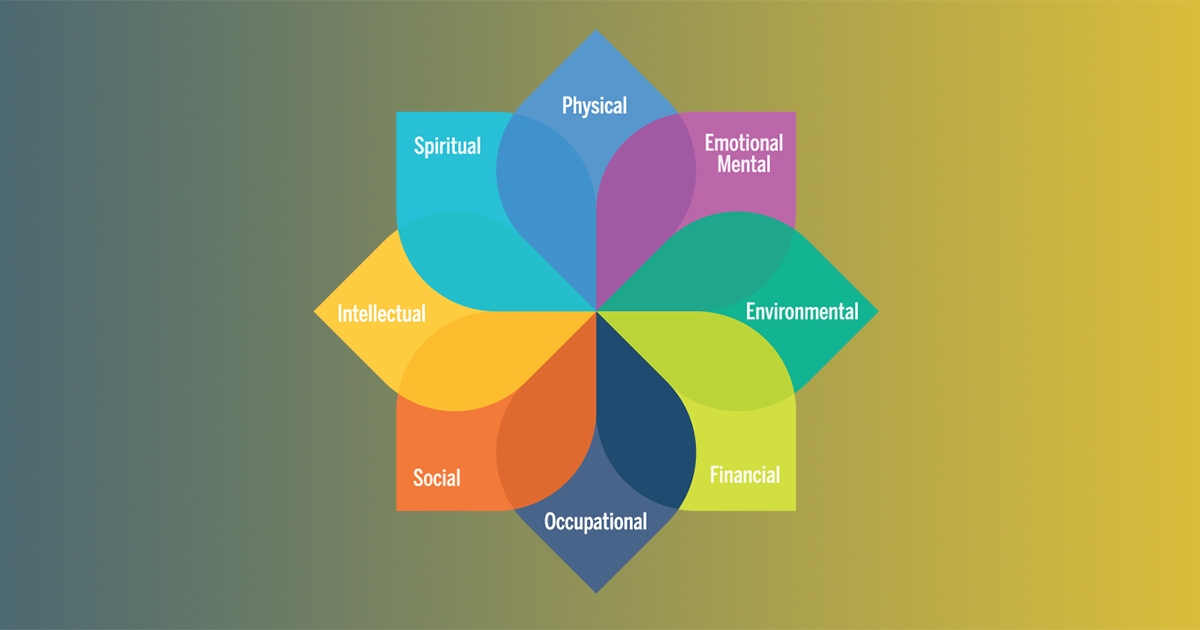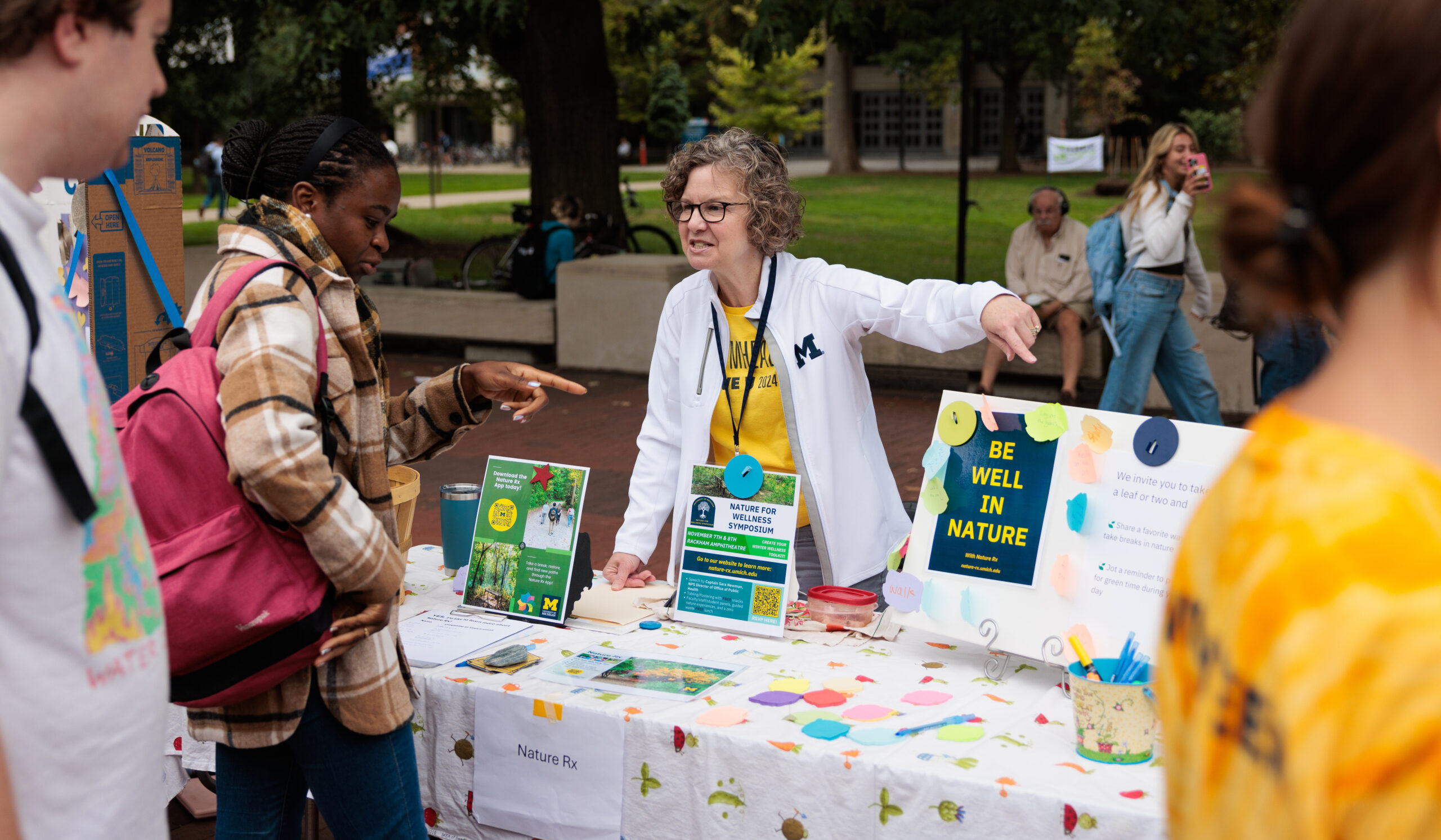As the holiday season approaches, so do final exams and end-of-semester projects and papers. Studying can take its toll on both your mind and body, so self-care and reaching out for help can be important during this busy time. How we define self-care, however, is different for each of us, according to Joy Pehlke, a wellness coach and health educator at Wolverine Wellness. Learn how to integrate self-care and help-seeking into an already busy life.
Acknowledge Self-Care Stress
High-achieving people, like the average U-M student, often measure their success by grades, productivity, and involvement on campus. So when you hear that you should be incorporating self-care into your life, it often feels like another task you need to find time for. What are you already doing that feeds your sense of well-being—connecting with family and friends, listening to music, taking a walk, doing artwork? You can continue to prioritize these things despite the busy-ness by finding little bits of time for yourself, even just sitting down to an afternoon cup of tea. In other words, you have to define what self-care looks like for you.
Share and Care
Self-care is also recognizing when you need to ask for help. Our culture of independence means not wanting to burden others with our problems. We think, “Oh, this is not bad enough to need help.” We need to create a community of caring where people share what they are going through and notice when others are struggling and reach out.
A Balancing Act
“Balance” is an overused word. Not every day is going to feel balanced, even if you incorporate self-care tactics. Some days are more stressful than others, but it is important to recognize when your balance feels very off and reach out for help. That can be more formal, like contacting CAPS (U-M’s Counseling and Psychological Services) or a wellness coach, or reaching out to your community or family members.
Holiday Hype
With the holidays coming up, it is important to recognize that not everyone is looking forward to winter break. The break can mean different things for different people. Some might have difficult family relationships, so going home can be particularly stressful. Others would love to go home but aren’t able to travel. It’s important to be sensitive to others when discussing holiday plans.
Wellness Wisdom
To learn more about how to incorporate wellness into your life, Pehlke recommends visiting the U-M Student Life well-being website, complete with a calendar of events designed to help ease stress. Offerings include hanging with Hawkeye the therapy dog, practicing mindfulness meditation, or just gathering quietly with other students to create art, write, and reflect. Additionally, “Living Well in College and Beyond”—a two-credit course now offered in the fall and winter semesters—explores the eight dimensions of personal well-being and the intersection of well-being and diversity, equity, and inclusion.
For more information on self-care, read this New York Times article, in which students share the different ways they practice self-care.





